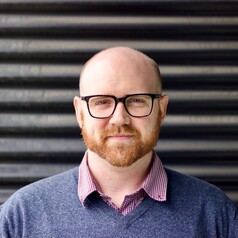
Peter Crank
Assistant Professor of Geography, University of Waterloo
Peter Crank is an urban climatologist and geographer focused on helping people by improving thermal comfort, mental wellbeing, and education of the public through atmospheric measurements, statistical, and numerical modeling.
My experiences in project management, scientific writing, and science communication have resulted in multiple publications via peer-reviewed research and were achieved through successful research grant support writing. My science communication skills have also been leveraged in developing students in university settings by managing classrooms of various sizes and purposes, from labs to lectures, introductory courses to graduate level seminars.
Less ![]()
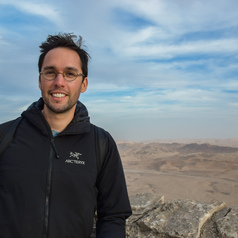
Peter Crockford
Assistant Professor, Earth Sciences, Carleton University
I am an assistant Professor at Carleton University in Ottawa Canada. My research explores the interactions of life and the surface environment over the course of Earth history. To do this I sample ancient rock formations and apply cutting edge geochemical techniques to explore this history. Before arriving at Carleton I was a Postdoctoral Fellow at Woods Hole Oceanographic Institution, Harvard University and the Weizmann Institute of Science which I began after completing my PhD at McGill University.
Less ![]()
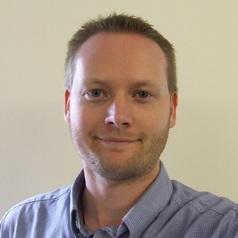
Peter Cruddas
Senior Lecturer in Environmental Engineering, University of Portsmouth
I completed my BEng (Hons) degree in Civil and Structural Engineering at the University of Bradford, and my MSc in Water Management (Community Water Supply) at Cranfield University. After two years working in industry, I returned to Cranfield University to complete my PhD titled 'Anaerobic ponds for domestic wastewater treatment in temperate climates'.
I continued at Cranfield at a Post-Doctoral Research Fellow for three years, before taking a role as Lecturer in Water and Environmental Engineering at the Botswana International University of Science and Technology.
In July 2019 I returned to the UK to take up my current appointment as Senior Lecturer in Water and Environmental Engineering and the University of Portsmouth.
My current research focuses on resource recovery - water, energy, and minerals - from wastewater streams, including with the EC Interreg project NEREUS.
I am also interested in technology implementation for improved WASH access in developing countries, and how that technology interacts with the social and economic issues present in the sector.
An emerging research interest is the treatment and remediation of pollution of coastal cities, particularly at present the issue of Nitrates in Portsmouth Harbour and the Solent.
Previous research activity involved work for major UK water companies and consultancies, and for the development sector in energy recovery from latrine wastes and solid waste streams in developing countries. Whilst at Cranfield University, I was a Work Package leader within the European Commission FP7 project Water4India, and contributor to the Nanomembrane Toilet, a Phase 2 Bill and Melinda Gates Foundation project.
Less ![]()
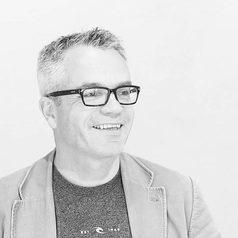
Peter Cunliffe-Jones
Visiting Researcher & Co-Director Chevening African Media Freedom Fellowship, University of Westminster
I have been a Visiting Researcher at University of Westminster in London since 2019, researching types, drivers and effects of misinformation and the status and effects of policies intended to counter misinformation. At the same time, I am Co-Director of a course on media freedom in the UK and Africa, run in partnership with the UK's Chevening Foundation.
My professional background since 1990 has been is in journalism. In 2012, I devised and founded the fact-checking organisation Africa Check in a partnership with the Journalism Department of the University of the Witwatersrand in South Africa, and ran it until 2019.
Less ![]()
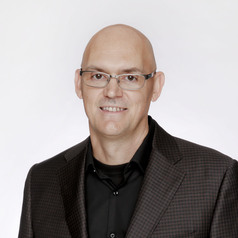

Peter Davies
Professor of Education Policy Research and Director of Research, School of Education, University of Birmingham
Peter is Director of Research and Deputy Head of the School of Education at the University of Birmingham. He also leads the Centre for Higher Education Equity and Access and programme lead for the Masters in School Improvement and Educational Leadership.
His main research interests are multidisciplinary analysis of participation, choice and engagement in secondary and higher education.
Private and public finance of education.
Conceptual change with particular reference to understanding in economics.
Relationships between different theoretical perspectives on conceptual change, particularly Variation Theory and Threshold Concepts.
Development of teachers’ thinking and practice through ‘Learning Study’
Less ![]()

Peter Day
Professor of Children's Oral Health and Consultant in Paediatric Dentistry, University of Leeds
Paediatric Dentist working in Leeds and Bradford. Academic with interests in children's oral health, dental trauma and paediatric dentistry.
Less ![]()

Peter de Menocal
Director, Woods Hole Oceanographic Institution
Peter B. de Menocal is the eleventh president and director of Woods Hole Oceanographic Institution, effective Oct. 1, 2020. A marine geologist and paleoclimatologist, de Menocal's research uses deep-sea ocean sediments as archives of how and why Earth's ocean and climate have changed in the past in order to predict how they may change in the future.
Prior to assuming leadership of WHOI, de Menocal was the Thomas Alva Edison/Con Edison Professor in the Department of Earth and Environmental Sciences at Columbia University's Lamont-Doherty Earth Observatory. In 2015, he became the founding director of Columbia's Center for Climate & Life, a research accelerator of 120 scientists and other experts dedicated to understanding how climate affects life's essentials-the security of food, water, and shelter-and to exploring sustainable energy solutions in partnership with industry, finance, and government.
From 2016 to 2019, De Menocal served as Columbia's Dean of Science for the Faculty of Arts & Sciences, overseeing 240 faculty across the university's nine scientific departments. During his tenure as dean, de Menocal developed and carried out a strategic plan that helped double philanthropic support for the sciences at Columbia, significantly increase success in winning large center and institute awards, and increase faculty hiring rates for women and under-represented minorities in the natural sciences.
De Menocal has published more than 150 scientific papers over his decades-long career in oceanography. He has received numerous awards and distinctions, including Fellow of the American Geophysical Union and the American Association for the Advancement of Science, AGU Emiliani lecturer, a Lenfest Columbia Distinguished Faculty award, and a Distinguished Brooksian award. He earned a doctorate in geology from Columbia University and a master's degree in oceanography from the University of Rhode Island, and was awarded an honorary doctorate from St. Lawrence University.
Less ![]()
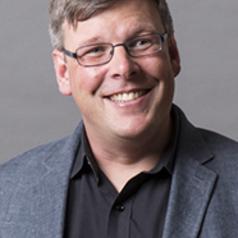
Peter Dearden
Professor and Director of Genomics Aotearoa, University of Otago
My lab aims to understand the molecular basis of morphological evolution by studying how the developmental pathways that regulate embryogenesis evolve to produce different animal morphologies. To study this we use two model systems, the Honeybee (Apis mellifera) and a Rotifer (Brachionus plicatilis).
Less ![]()
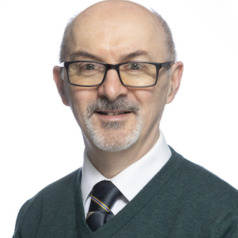
Peter Deeney
Principal Investigator and Senior Post Doctoral Researcher in Energy Finance, Environmental Research Institute, University College Cork
Peter Deeney is a senior post doctoral researcher in University College Cork, and the Principal Investigator of the Wind Value project. The Wind Value project is funded by the Irish Research Council. It aims to produce two decision-support tools, one for wind-farm owners to assist with end-of-life decisions for their wind farms (decommissioning, life extension or repowering), and one for community investors to estimate risk. Peter also works on the XROTOR project examining the use of a novel vertical axis offshore wind turbine, and with colleagues in IEA Wind Task 45 investigating methods to recycle used wind-turbine blades. He is a member of the Re-Wind Network.
Less ![]()

Peter Ditlevsen
Professor in physics of ice, climate and earth, University of Copenhagen
I am a member of the Ice and Climate Group and associated with the Complexity Group.
My fields of interest are in climate research, turbulence, meteorology, complex systems, time series analysis and statistical physics.
Less ![]()
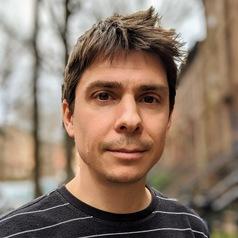
Peter Dixon1
Associate Professor of Practice, Negotiation and Conflict Resolution, Columbia University
Peter Dixon is an Associate Professor of Practice in Negotiation and Conflict Resolution at the School of Professional Studies at Columbia University. He received his PhD in sociology from the University of California, Berkeley in 2015. In his research, Dr. Dixon uses mixed methodologies to understand how local knowledge can influence transformative solutions toward peace and justice in conflict-affected communities.
Currently, he is researching community-based transitional justice in Colombia and bottom-up approaches to public safety and restorative justice in urban America. He has received support for this work from foundations including the National Science Foundation, United States Institute of Peace, Inter-American Foundation, and Humanity United. His writing has been published in journals including the International Journal of Transitional Justice, the Journal of Human Rights Practice, and Law and Social Inquiry, and in a number of edited volumes.
Dr. Dixon collaborates with diverse organizations in his work, always with the goal of making his research useful for addressing social problems and respectful of the communities who these problems ultimately affect. As a former evaluation specialist at the United Nations in New York and at the International Criminal Court in The Hague, he also continues to support international organizations on monitoring, evaluation and strategy. He serves on the Boards of the NGO Everyday Peace Indicators and the Davis Collaborative in Conflict Transformation at Middlebury College. He is also a Faculty Affiliate at the University of California Berkeley Possibility Lab and fellow of the Salzburg Seminar.
Less ![]()

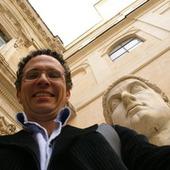
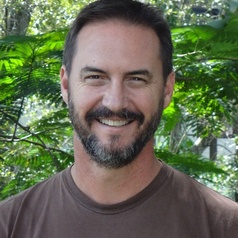
Peter Ellerton
Lecturer in Critical Thinking, The University of Queensland
Director of the University of Queensland Critical Thinking Project and lecturer in critical thinking in the school of Historical and Philosophical Inquiry. Degree in Education and post graduate degree in Philosophy. Master of Contemporary Science from the ANU. Former Head of Experimental Science at the Queensland Academy of Science, Mathematics and Technology.
Less ![]()
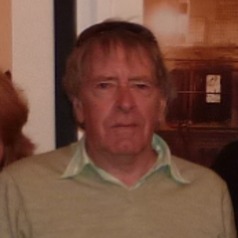
Peter Fisher
Adjunct Professor, Global, Urban and Social Studies, RMIT University
Peter Fisher is an Adjunct Professor in in the School of Global, Urban and Social Studies at RMIT University. He has spearheaded a large number of projects at all levels of government as well as private industry including stormwater, creating cooler cities through the use of vegetation and a systemic integration of the water and electricity sectors. He has further been involved in education and training writing tertiary level courses on water management as well as climate change adaptation and water management; some for AusAid. He has also contributed a chapter on Melbourne to a new book, Resilient coastal city regions: Planning for climate change in the United States and Australia as well as to another new book, Managing Urban Disaster Recovery on infrastructure. He has just published with D Trainham, a PhD candidate, Naturizing outside-in: Reconnecting buildings with the natural world through a design innovation metric https://www.cuge.com.sg/research/images/cugeresearch/CG6/Article%2014..pdf in the January 2013 issue of the Singapore based journal, CITYGREEN https://www.cuge.com.sg/research/CITYGREEN. This has recently been incorporated into the Green Building Council of Australia's Innovation Challenge program. A Green Star naturizing index can now be found at http://www.gbca.org.au/uploads/78/34894/Market_Intelligence_Research_FINAL_JUNE2014.pdf.
As an environment and science writer Dr. Fisher has published thirty eight articles since his first for the Australian Financial Review in 1999. Those of relevance to the carbon/climate change arena are: Water industry guilty of burning too much energy, Water Special (AFR, Tuesday 14 August 2003), Susceptible to calamity: Extremes of climate are a fact of life and we should be better prepared for them, The Australian, (Tuesday 21 March, 2006); Cold comfort in climate change, Sydney Morning Herald, (Saturday 6 January 2007); Canberra Times, Climate: Time is against us (Monday 8 January 2007.); and Why we need the urban forest, Urban magazine, (July quarter, 2007). His most recent pieces to with adaptation have appeared as OpEds in The Age - Ready for heavy weather, Monday 23 April 2008; Planning for a flood, Monday 29 September 2008; Big solutions for our water needs will use even more energy, Monday 9 March, 2009; It's time literally to go green, Monday 23 January, 2009; followed by A lack of ingenuity is evident in dealing with our water crisis, Tuesday 28 July 2009. And, a week before the latter, All change for the future, The Australian, Wednesday 22 July 2009. Further pieces appearing in The Age and National Times since then have been Rack ’em and stack ‘em: a silly solution to population growth, Thursday 18 March 2010. When everything's connected, one fault can be catastrophic. Monday, June 21, 2010 and Building for a cantankerous planet, Monday October 11, 2010, and Energy hungry water providers need to get with the power, Monday 3 January 2011.
Less ![]()
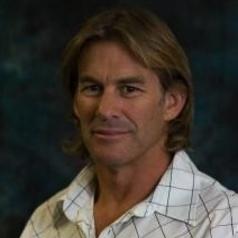
Peter Franklin
Associate Professor and Director, Occupational Respiratory Epidemiology, The University of Western Australia
Peter Franklin is a researcher with interests in environmental impacts on human health. His research has been focussed on the impacts of air pollution, predominantly indoor air pollution, on the respiratory health of children and adults. He currently heads the indoor air pollution node of the Collaborative Research Centre for Asthma and Airways. He is also the Environmental Co-ordinator of the WHO Collaborating Centre for Research on Children's Environmental Health at the Telethon Institute for Child Health Research. His research interests also involve measures of infant and pre-school lung function and how these tests can be utilised in environmental health research.
Less ![]()
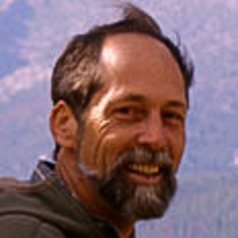
Peter Frederick
Research Professor, University of Florida
I am interested in the ecology and conservation of wetlands, and particularly of wetland vertebrates. These creatures are adapted to environments that are extremely productive, yet often very unpredictable, and whose nutrient cycling is completely different from terrestrial, oceanic or lacustrine environments. The field of wetland science is dominated by studies of energetic flow, plant ecology, and nutrient flux, in which wetland vertebrates are often assumed to play minor roles. Yet animals, even vertebrates, are often key in the healthy functioning of these ecosystems, and the conservation and restoration of these ecosystems depends strongly upon an understanding of how larger animals use them, especially in terms of movement behavior, foraging ecology, and reproduction. For vertebrates, this often requires understanding various aspects of ecosystem function at once, and often at regional and even international scales. In my research program, wetland birds have been used intensively and extensively as indicators of ecosystem health, ecosystem function, and as guides for the spatial and temporal scale at which conservation and restoration should occur. My work has included vertical studies of long-legged wading birds in the Everglades (health, reproduction, foraging ecology, energetics, flight behavior, communication, movements, demographics, feedback nutrient loops), comparisons of ecosystems (Everglades, Miskito Coast, Okavango Delta, Brazilian Pantanal), measuring anthropogenic effects (human disturbance, hydrological management, nutrient pollution, powerlines, construction, contaminants), multidecadal studies of population dynamics and movements, and ecosystem/regional planning for conservation.
Less ![]()

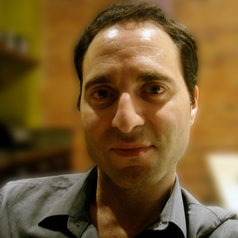
Peter Ghin
Research fellow, Future Of Work Lab, Faculty of Business and Economics, The University of Melbourne
Peter is an experienced researcher whose interests span topics including the future of work, inclusive employment, and leadership. In his role as a Research Fellow for the Future of Work Lab, he has focussed on exploring patterns of inward migration, particularly the way remote working has influenced the movement of human capital and its potential impact on regional innovation and entrepreneurship.
Less ![]()
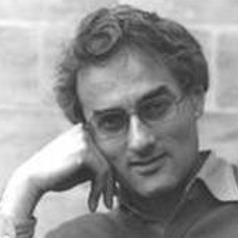
Peter Ghosh
Dr. Peter Ghosh is Associate Professor of Modern History at Jean Duffield Fellow in Modern History, University of Oxford.
I am interested primarily in the history of ideas, both social and political theory and also the history of historiography, in accordance with my research interests.
I have two related research interests: first, the interface between political ideas and English politics, ca 1850-1895; secondly, the evolution of Western European and British ideas, including historiography, from the Enlightenment to the present. My current publishing commitments centre on Max Weber.
Less ![]()
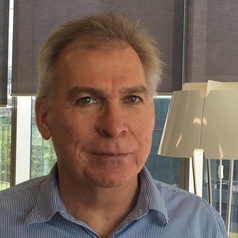
Peter Grace
Professor of Global Change, Queensland University of Technology
Peter Grace is Professor of Global Change within the Science and Engineering Faculty and a Theme Leader at the Institute for Future Environments at QUT.
He is a terrestrial ecosystems scientist specialising in the interaction of carbon, nitrogen and water in soils.
He is currently the national coordinator of a major research network funded by the Australian government developing innovative soil and water management strategies which will reduce our national greenhouse gas footprint without impacting on agricultural production.
Peter has worked throughout the Americas, Asia and Africa in developing sustainable food production systems. He holds adjunct positions at the Earth Institute of Columbia University (New York) and Michigan State University.
Less ![]()

Peter Greenan
Senior Lecturer and CMI Programme Director, University of Huddersfield
I joined the University on a full time basis in February 2014. Prior to that I had worked as a part time lecturer since October 2013. This followed a successful 4 year period of study at the University where I completed the CIPD professional development course and gained a Masters Degree in Human Resource Development.
Between Dec 2007 and Feb 2014 I worked for Provident Financial Group where I performed a variety of roles within the People Development function. In the first 2 years I was the training lead on a major new project then I transferred to a Divisional role as a People Development Adviser with a specific remit for Learning and Development. In this role I covered Yorkshire, Humberside, the North East and parts of Nottinghamshire. During this time I also developed and delivered modules centrally on the Leadership and Management programmes accredited by the CMI. Between Nov 2012 and Feb 2014 I was based in Head Office again with Internal Verfirier responsibilities for the CMI Level 5 (Senior Management) programme and I designed and managed the Management Learning Academies which provided a 6 weeks induction to the company for new managers with a mixture of classroom and experiential learning.
Between April 2002 and Dec 2007 I worked for Protocol Skills (the UKs largets independent training provider). Having started out as an assessor I became an Internal Verifier (IV) and as such hold D32, D33 and V1 qualifications. In 2003 I became Area Manager for West Yorkshire and Lead IV for Yorkshire and Humberside. In these combined roles I increased our levels of funding by regularly exceeding the funding body target success rate of 70%. During 2005 and 2006 I was seconded to a change management project group which altered the business model from a paper based to an e-portfolio. My role on the project was training lead and I converted all project material into training materials which I then delivered to the pilot location of Yorkshire and Humberside. This successful pilot enabled the e-portfolio to be adopted on a national basis.
Between March 1997 and April 2002 I worked for Thomas Cook. 1997 – 2001 I worked overseas and progressed from being a rep to Head Rep and Resort Manager. I managed multiple resorts in Menorca and Fuertaventura and was Airport Controller in Cancun. My favourite destination was Mallorca where I worked for 3 seasons. My greatest success as a Resort Manager came in Menorca where I achieved 86% good or excellent customer service scores, from 19,000 guests, against a target of 80%.
2001 – 2002 I was Senior Customer Service Adviser in the Bradford office, leading a team of 9, dealing with post holiday queries.
Less ![]()

Peter Hain
Visiting Adjunct Professor at Wits Business School, University of the Witwatersrand
The Right Honourable Lord Hain of Neath is an author, politician and activist, served in the governments of Tony Blair and Gordon Brown for 12 years. As Secretary of State for Northern Ireland, he negotiated an end to the conflict, and as a staunch anti-apartheid leader, Peter was instrumental in stopping all-white South African sports tours from 1969 onwards. An author of 21 books, Peter joined WBS as Visiting Adjunct Professor in 2016.
Less ![]()

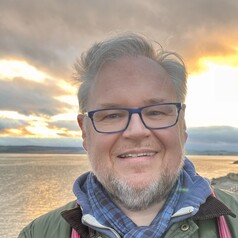
Peter Hopkins
Professor of Social Geography, Newcastle University
I am currently Professor of Social Geography in the School of Geography, Politics and Sociology where I supervise a group of PhD students and undertake research. My research and teaching interests centre upon the challenges and complexities of inequality and justice, and how these interrelate with debates about equality and diversity. More specifically, my work draws attention to the exclusionary ways in which various forms of discrimination and marginalisation – such as racism, sexism, Islamophobia, sizism and ageism – shape people’s everyday lives, structure the resources available to them and influence their political and social mobility. This work is built upon a commitment to empirical research that is informed both by current debates in academic literatures and theoretical understandings about intersectionality, society and space, as well as – where appropriate – concerns of relevance to policy makers and practitioners.
Less ![]()

Peter Howell
Senior Lecturer in Game Design, University of Portsmouth
I am a Senior Lecturer in Computer Games Design in the School of Creative Technologies at the University of Portsmouth. I am the Deputy Course Leader for BSc(Hons) Computer Games Technology. Previously, I have taught Games Design and Development at both Further and Higher Education level, focusing primarily on game design, 3D asset creation, gameplay scripting and academic games research. I have design and development experience in the UK games industry, including in my role as Game Designer at The Chinese Room.
I completed my PhD in 2015, with my thesis focusing on Disruptive Game Design - an approach to game design that aims to subvert 'typical' game rules and associated player expectations of how games 'should' work. I now lead the Advanced Games Research Group (AGRG) within the school which is currently engaged in multiple projects, developing research-driven commercial game products in areas including disruptive game design, narrative design, player psychology, and playful prototyping.
Less ![]()

Peter Irvine
Lecturer in Earth Sciences, UCL
I am a Lecturer in Earth Sciences at UCL. My research focuses on solar geoengineering, a set of proposals to increase the amount of light that the Earth reflects to lower its temperature. Through my research, I seek to understand the potential risks and benefits of solar geoengineering and to explore its broader implications. My work has two broad themes:
1) Evaluating the climate response to solar geoengineering. Using state of the art Earth system models, I analyse the climate response to stratospheric aerosol geoengineering and other solar geoengineering proposals. I am particularly interested in finding ways to understand and effectively visualise this climate response.
2) Considering the broader implications of solar geoengineering. Collaborating with colleagues from a range of disciplines, I seek to draw out the implications of the scientific findings on solar geoengineering for the broader questions that this proposal raises.
In my interdisciplinary work I seek to connect the scientific findings on solar geoengineering to the broader questions that this proposal to control the climate raises. I work with ethicists, economists and lawyers to better understand the potential harms and benefits of solar geoengineering and how they could be addressed through compensation. I also work to understand the implications that the technical requirements of solar geoengineering would have on its governance.
Less ![]()
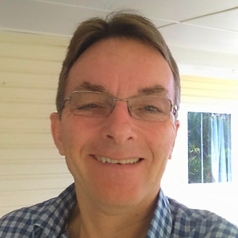
Peter Jacklyn
NAFI Service Manager and Knowledge and Adoption Coordinator, Charles Darwin University
Peter Jacklyn manages the North Australia and Rangelands Fire Information (NAFI) service, is based in Cairns and works for Charles Darwin University.
He has a background in science, communication and making research and technology useable, particularly the satellite data used for rural and remote fire management.
He has overseen the NAFI service www.firenorth.org.au since its inception in 2002.
Less ![]()
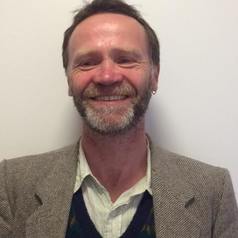
Peter Jones
Lecturer in Education, Keele University
I joined Keele in March 2016 to take up the role of Director of PGCE Programmes. I have worked at the Universities of Bristol, Southampton and Bath Spa. I completed my PhD as an ESRC funded scholar, under the supervision of Professors Susan Robertson and Roger Dale at Bristol University, and my thesis investigated the role of the European Commission in the Governance of Education Policy in the European Union. As a researcher, I work in inter-disciplinary collaboration with scholars from Economic Geography, Politics and Sociology with a particular interest in the Political Economy of Education, ethnographies of educational institutions, the inter-scalar production of education policy and the financialisation of Higher Education.
My teaching spans PGCE, Masters and Doctoral Education programmes with particular responsibility for Curriculum, Policy and International Education modules. I have gained research funding and managed research projects for the Economic and Social Research Council and the Equalities and Human Rights Commission in the UK, and the European Commission and Centre for European Policy Studies in Europe.
Less ![]()
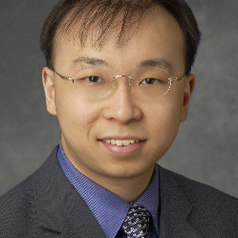
Peter K Yu
Peter K Yu is Professor of Law and Co-Director of the Center for Law and Intellectual Property at Texas A&M University School of Law. Born and raised in Hong Kong, he held the Kern Family Chair in Intellectual Property Law at Drake University Law School. He also served as Wenlan Scholar Chair Professor at Zhongnan University of Economics and Law in Wuhan, China and a visiting professor of law at the University of Haifa, the University of Hong Kong and the University of Strasbourg.
Less ![]()
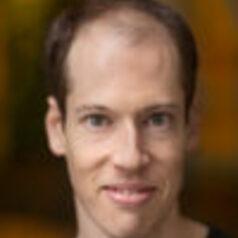
Peter Kasson
Professor of Molecular Physiology and Biomedical Engineering, University of Virginia
Peter Kasson addresses fundamental questions about infectious disease by studying the membrane biology of virus-host cell interactions using both computational models and experimental approaches. He received his MD and PhD from Stanford University, where he worked on antigen presentation with Harden McConnell and cell-surface signaling in T-cell activation with Axel Brunger and Mark Davis. During his postdoc with Vijay Pande, he helped develop the distributed-computing infrastructure behind FOLDING@HOME and also studied the biophysics of vesicle fusion.
The Kasson lab now applies this study of membrane biophysics to viral infection, particularly influenza and Zika virus. We develop computational models, new physical tools, and combine the two for insight into viral infection. Another arm of the lab focuses on extreme drug resistance in bacteria, which started when Peter Kasson was visiting faculty with Google. We again combine large-scale simulations with experiments to improve diagnosis and therapy of drug-resistant infections.
Less ![]()
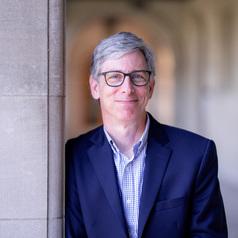
Peter Kastor
Professor of History & American Culture Studies, Associate Vice Dean of Research, Arts & Sciences at Washington University in St. Louis
I am a historian who examines the intersection of American politics and culture. My work examines not only the realities of politics and policymaking, but also the ways that Americans interpret and imagine the political world around them. Much of that focuses on the Presidency in politics, policymaking, and culture. My work in this area extends from the Founding Fathers through the current day. In addition to my research in these fields, I teach courses on the American political system in general and the American Presidency in particular. I have written periodic op-ed pieces for various media outlets, and have served as an expert for print, radio, and TV journalists.
Less ![]()
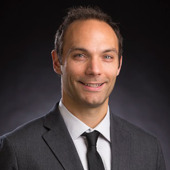
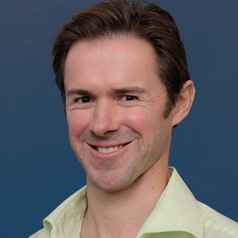
Peter Keller
I hold degrees in Music and Psychology from the University of New South Wales in Australia. I am currently Professor of Cognitive Science and leader of the ‘Music Cognition and Action’ research program in the MARCS Institute for Brain, Behaviour and Development at Western Sydney University. I conduct research aimed at understanding the behavioural and brain bases of human interaction in musical contexts.
Less ![]()
- Market Data


















